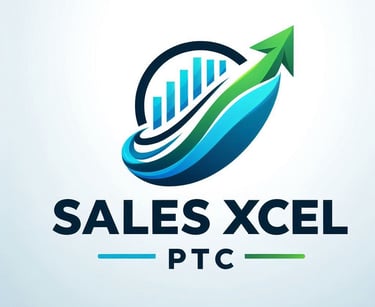The Art of Follow-Up
The Difference between First and Second Place
10/2/20252 min read


A successful sales presentation does not end when the meeting concludes. In fact, what happens after the presentation often determines whether opportunities move forward or fade away. The follow-up is where professionalism, discipline, and client care are demonstrated. Done well, it builds trust, reinforces value, and advances the sales process. Done poorly—or not at all—it leaves gaps that competitors may fill.
Confirm Next Steps Before Leaving the Room
The follow-up begins before you leave the presentation. Always confirm any promised deliverables, action items, and the client’s decision-making process. Clarifying who will do what, and by when, prevents misunderstandings and ensures alignment on expectations.
Debrief with the Deal Team
Immediately after the meeting, debrief with your deal team. Review what went well, what questions arose, and whether any gaps remain. This step ensures that every promise is captured and that the entire team is aligned on how to respond effectively.
Send a Thank You Note with Deliverables
A prompt thank you note sets a professional tone. In your message:
Express appreciation for the opportunity.
Reconfirm your understanding of the client’s decision-making timeline.
Deliver promised items or specify delivery dates.
Adding a personal touch, such as a hand-signed note, can leave a lasting impression in a digital-heavy world.
Engage Client Allies for Adjustments
Follow-up is not only about tasks—it’s also about listening. Check in with allies inside the client’s organization to confirm that your understanding of next steps is accurate and to identify any adjustments needed. Allies often provide valuable insights about timing, process, or internal priorities.
Stick to the Agreed-Upon Cadence
Respecting the client’s timeline is critical. Stick to the agreements made about when and how you will follow up. Over-communicating can feel pushy, while under-communicating risks losing momentum. Discipline in this area shows professionalism and reliability.
Ask Questions to Advance the Process
Each follow-up should not only deliver value but also advance the dialogue. Ask thoughtful questions:
Would another meeting help address open questions?
Is a follow-up call with technical experts appropriate?
Are there other stakeholders we should include?
By framing follow-ups as opportunities to help the client, you reinforce your consultative approach.
Continually Thank the Client
Gratitude is powerful. Thank the client often—for their time, their openness, and the opportunity to compete for their business. This small gesture builds goodwill and reminds the client that their consideration is valued.
Mastering the Follow-Up
The art of follow-up lies in balancing persistence with professionalism. When executed with discipline—confirming next steps, debriefing internally, delivering on promises, respecting timelines, and asking questions—follow-up becomes a competitive advantage. It reassures the client that your team is capable, attentive, and genuinely invested in their success.
In sales, the presentation earns you the chance. The follow-up earns you the win.
Expert advice for your business growth.
info@sales-xcel.com
© 2025. All rights reserved.


Sales Xcel PTC, LLC
